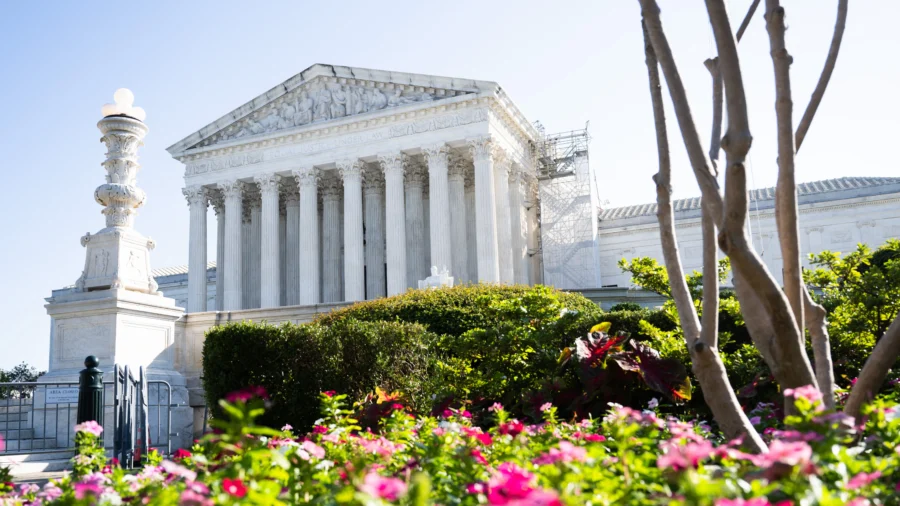The Supreme Court on Oct. 21 said it will hear Oklahoma’s case claiming that state disputes over a U.S. Environmental Protection Agency (EPA) policy should be heard in regional circuit courts, as opposed to Washington.
At issue is the EPA’s “good neighbor” rule that cracks down on states whose industries are said to be contributing to smog.
Separately, the Supreme Court voted 5–4 on June 27 to temporarily put the rule on hold. The court held the emissions-reduction standards established by a federal plan would probably cause irreversible harm to several of the affected states, unless the plan were stayed until it could be reviewed by the lower courts.
The nation’s highest court stayed the plan, pending review by the U.S. Court of Appeals for the District of Columbia Circuit.
Led by Ohio, the states said the regulation was costly and could lead to blackouts, while the EPA said the rule was urgently needed to fight air pollution.
The coalition of states also said the EPA’s plan is an illegal overreach that undermines the principles of the federal Clean Air Act, which allows states leeway to propose their own air pollution control measures.
The plan is reportedly in effect in 11 states; courts have blocked it in 12 states.
Meanwhile, the justices granted Oklahoma’s petition in an unsigned order. The court did not explain why it granted the petition. No justices dissented.
The case is actually two cases—State of Oklahoma v. EPA and PacifiCorp. v. EPA—which the Supreme Court ruled will be heard together at the oral argument stage.
According to Oklahoma’s petition filed on March 28, the Clean Air Act requires each state to adopt an implementation plan to comply with national standards, which the EPA then reviews.
In 2023, the EPA rejected 23 states’ plans for meeting national ozone standards by publishing a single notice in the Federal Register, a daily publication that publishes notices about federal regulations, presidential documents, and notices by federal agencies.
The act states that a petition for review of an EPA action “in approving or promulgating any implementation plan … or any other final action of the [EPA] under this Act … which is locally or regionally applicable may be filed only in” the appropriate regional U.S. court of appeals, while “nationally applicable regulations … may be filed only in” the U.S. Court of Appeals for the District of Columbia Circuit, the petition says.
Litigants from a dozen states applied to courts “in their appropriate regional circuits” to review the agency’s disapproval of their state plans and the Fourth, Fifth, Sixth, and Eighth Circuits found that it was proper for the states to file in regional courts of appeals.
But in February of this year, the 10th Circuit determined that challenges to EPA disapproval of the plans prepared by Oklahoma and Utah could only be filed in the “D.C. Circuit, explicitly disagreeing with the decisions of its sister circuits.”
The issue, according to the petition, is whether a final action the EPA takes under its Clean Air Act authority regarding a single state or region may be challenged “only in the D.C. Circuit because EPA published the action in the same Federal Register notice as actions affecting other states or regions and claimed to use a consistent analysis for all states.”
The federal government urged the Supreme Court in a May 21 brief not to take up the case.
U.S. Solicitor General Elizabeth Prelogar wrote that the 10th Circuit “correctly held that EPA’s disapproval action is nationally applicable.”
Even though circuit courts in other regional circuits “have reached the opposite conclusion, no circuit has issued a final decision adopting petitioners’ view.”
The government agrees with Oklahoma “that this Court should provide guidance to the courts of appeals” on the law, but instead should take up a different specific case, which “is a better vehicle for the Court’s provision of such guidance.”
Oral argument in the case may take place in January or February 2025.
From The Epoch Times

